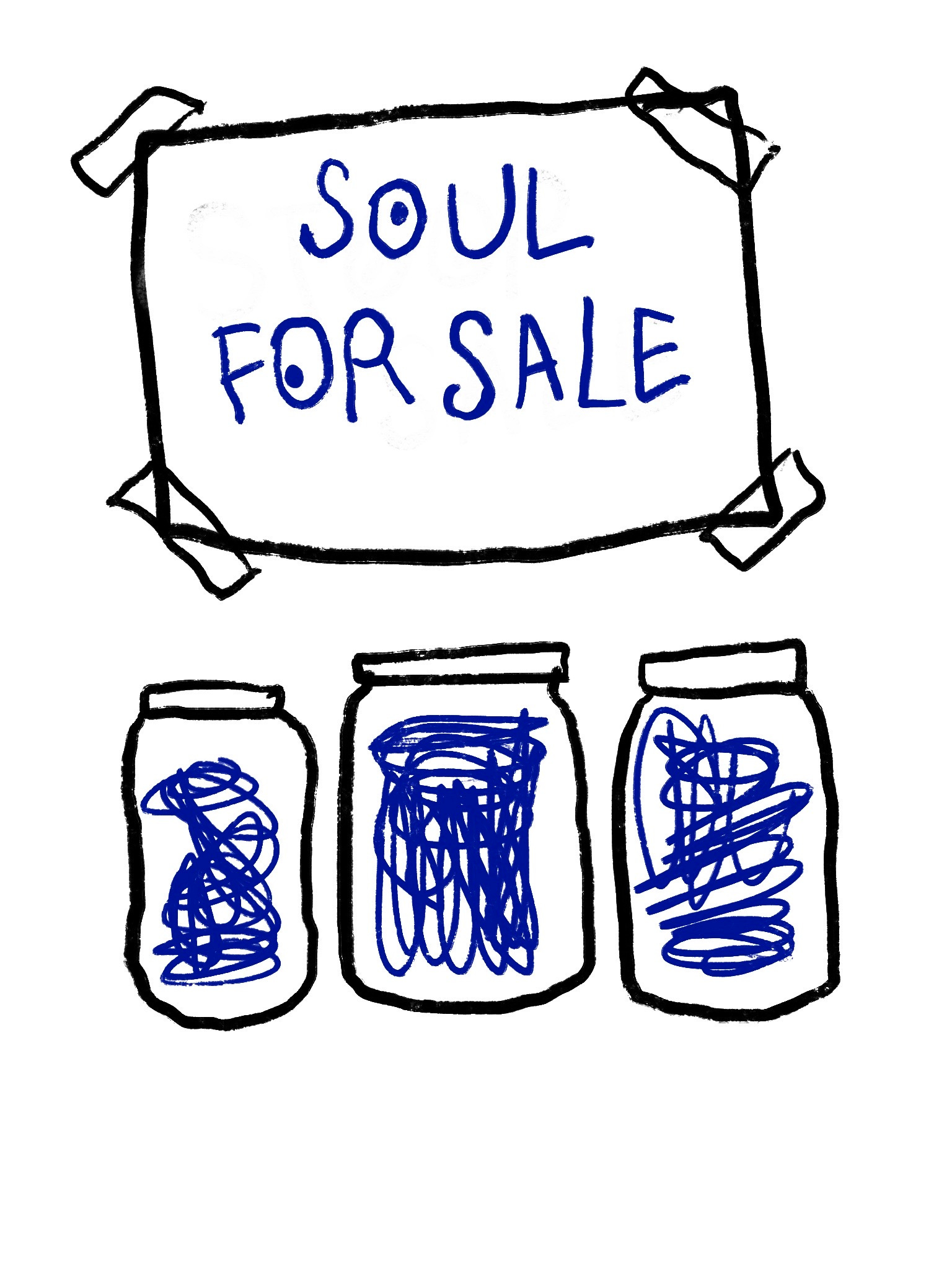 |
Do you ever worry about being a sell-out?
I do.
When I started out as a journalist over ten years ago, deep shade was thrown at anyone who did a bit of copywriting on the side. When I worked at a media organisation in a sponsored content team, there was an “us and them” atmosphere between my department and the newsroom. In short, if you did anything other “pure journalism,” you were a sellout.
After I went freelance, however, I quickly realised that all this kind of thinking did was to make me feel guilty about my income. Selling out feeds a dangerous idea that success is in scarcity and needs to be hoarded. While strides have been taken in the last few years to move away from these outdated notions of selling out, judgmental perceptions about how creatives should make their money nonetheless prevail.
These stereotypes were brought to the fore at the end of last week in an interview the food writer and NYT Cooking columnist Alison Roman gave to The New Consumer. In the interview, Roman talked about the conflict she’s experiencing in knowing what to do next. “I’m at a crossroads and I’m not really sure how to grow,” she said. In illustrating what she doesn’t want to do, she called out Marie Kondo, the author of the Life-Changing Magic of Tidying Up and Chrissy Teigen, the author of the cookbook Cravings as examples of business models she’s not interested in pursuing.
“When Marie Kondo decided to capitalize on her fame and make stuff that you can buy, that is completely antithetical to everything she’s ever taught you… I’m like, damn, bitch, you fucking just sold out immediately! Someone’s like ‘you should make stuff,’ and she’s like, ‘okay, slap my name on it, I don’t give a shit!’,” Roman said.
She also said that what Chrissy Teigen has done is “crazy” to her. “She had a successful cookbook. And then it was like: Boom, line at Target. Boom, now she has an Instagram page that has over a million followers where it’s just, like, people running a content farm for her. That horrifies me and it’s not something that I ever want to do. I don’t aspire to that. But like, who’s laughing now? Because she’s making a ton of fucking money,” Roman said.
Roman has since apologised in an Instagram post in which she said, “I’ve messed up. I promise I’m not going to put this behind me in the hopes it goes away. I need to learn from this.”
The interview and ensuing backlash got me thinking about how selling out is as problematic a term as it’s always been. And it’s time we put the loaded and judgemental phrase to bed. Especially when we talk about female creatives, because when you say a woman is a sell-out, what you’re really saying is that she’s “done enough now”.
It’s important to stress that Roman’s comments didn’t appear in a vacuum. Being perceived as a sellout is a creative’s worst nightmare; as such, worry that such criticism may be levied at you sits beneath the surface of every business decision you make.
While I know that the reality of high London living costs and poor freelance journalism rates means that I have to do commercial work, that doesn’t stop me feeling weird about it. I regularly do a sweep of my bylines to make sure I’ve done “enough” editorial ones recently to justify my status as a journalist.
In her Instagram apology post, Roman wrote: “Among the many uncomfortable things I’ve begun processing is the knowledge that my comments were rooted in my own insecurity. My inability to appreciate my own success without comparing myself to and knocking down others.”
It’s time we sold off the concept of selling-out and put the profits to good use.
The List
For more on the Alison Roman drama and how it revealed how much shame we attach to our successes, catch up with this week’s episode of the podcast.
“This effortless approach suggests it’s silly to care about money, business, or ambition and suggests that success comes when you stop trying. While valid, this view also lacks an understanding of how less privileged groups might navigate success.” If you want one more take on the Alison Roman interview, read Kristin Wong’s brilliant piece
Jen Miller’s written a brilliant post on what to do if you’ve had a shit day.
“With New York literary life paused, most of my anxieties have also dissipated. In the lovely silence of my study I can simply be a writer rather than engage in the performance of being a writer which is what New York is all about. I wonder now, why I did not free myself of New York sooner?” Rafia Zakaria on lying about living in New York to fit into the literary bubble
Rebecca Solnit has written a long read in the Guardian about the rise (and re-branding) of mutual aid in the face of the pandemic
Speaking of myth-busting, Farah Khalique has written a brilliant piece about how the coronavirus has busted some misconceptions about freelancing
The Freelance Writing Jobs Fund: Sian Meades-Williams has made six grants of £100 each available for freelance writers who have been hit hard by the Covid-19 pandemic
Online abuse advocacy group, Glitch, is offering several free one-hour online workshops for women and non-binary people on digital self-care, safety and security





